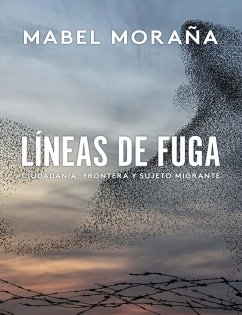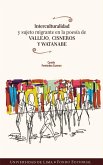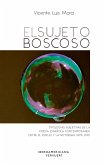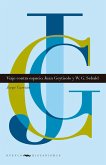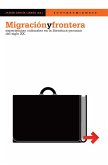"Migration is a good instance of what anthropologists used to call a "total social fact." Politics and society, culture and economy, law and aesthetics are all traversed by the challenge of migration. Therefore, a panoply of disciplines and perspectives are at work in the study of migration, producing a huge body of knowledge but also a certain sense of fragmentation. The amazing book by Mabel Moraña is quite unique in this respect. While she builds upon a vast number of investigations from several disciplines, Moraña succeeds in providing readers with a tightly integrated framework for the analysis of one of the most challenging question in our time. Following what she calls with Gilles Deleuze migrants' "lines of flight," she masterfully intertwines the investigation of borderlands and maritime frontiers with the analysis of poetry, works of art, and philosophical debates without ever forgetting the materiality of migration. Mabel Moraña has written a landmark work that will definitely leave a mark in future studies of borders and migration". ¿ Sandro Mezzadra, Università di Bologna, co-autor con Brett Neilson de Border as Method, or the Multiplication of Labor (2013). "Líneas de fuga. Ciudadanía, frontera y sujetos migrantes, de la egregia y prolífica investigadora uruguaya Mabel Moraña, es una obra notable, donde los temas abordados se inscriben en un marco interpretativo solvente e iluminador. Teóricamente, este estudio incorpora críticamente los principales debates, textos y autores desde campos como la historia, la antropología, la sociología, la filosofía, la geografía crítica, las artes, la (Po)ética, la crítica literaria y los estudios culturales. Moraña evidencia los dispositivos bio y necropolíticos inscritos en las políticas migratorias y en las narrativas de seguridad y gubernamentalidad, recuperando ejemplos y experiencias de América Latina, África y Europa. Este libro ofrece un potente aporte teórico y epistemológico y una perspectiva rigurosa y humanista imprescindible para interpretar la migración y para pensarnos desde proyectos incluyentes como sujetos migrantes". ¿ José Manuel Valenzuela Arce, Colegio de la Frontera Norte (Tijuana), autor de Jefe de Jefes. Corridos y narcocultura en México (2013).
Dieser Download kann aus rechtlichen Gründen nur mit Rechnungsadresse in A, B, BG, CY, CZ, D, DK, EW, E, FIN, F, GR, H, IRL, I, LT, L, LR, M, NL, PL, P, R, S, SLO, SK ausgeliefert werden.

